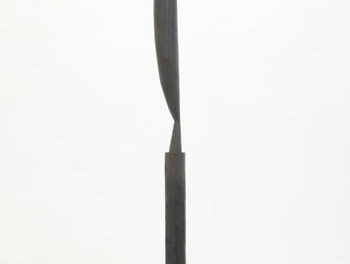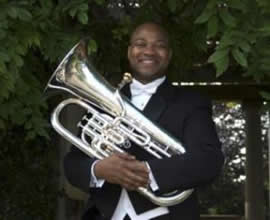Whether it’s tuberculosis or AIDS, Paris or Greenwich Village, La Bohème or Rent, 1896 or 1996, death and disease are intertwined in our imaginations with the struggling, impoverished lifestyles of Bohemian artists and intellectuals. What lifts these shivering, starving folk from seediness and squalor to the nobility of poetry, never upgrading their threadbare garments, is the music of Giacomo Puccini or his rock apostle, Jonathan Larson. Come to Belk Theater and the Opera Carolina production of Puccini’s seminal work and you may get an inkling of how inseparable the two composers’ works can become.
Scenic designer Peter Dean Beck has not updated the loft where we first meet the poet/playwright Rodolfo, his painter chum Marcello, musician Schaunard, and philosopher Colline. The boulevard bustle of the Latin Quarter and Café Momus is not on the awesome Franco Zefferelli scale of the beloved Metropolitan Opera production, but the spirit and colorfulness of Act II are also faithfully captured, where temptress Musetta and toyseller Parpignol highlight the broadened palette. Down in the pit, Maestro James Meena and the Opera Carolina Orchestra are no less devoted to the shifting moods of the score, whether lovers are pining or Christmas-crazed children are running wild.
No, it’s director Aldo Tarabella in his Opera Carolina debut who bridged the gap between the 1830s, the actual setting specified in the Giuseppe Giacosa-Luigi Illica libretto, and the AIDs-plagued 1990s. From the outset through the intermission between Acts II and III, Tarabella dispensed with subtlety in accenting the comedy of the first two scenes – the cavalier badinage between Rodolfo and Marcello as they cope with the cold, the successful conspiracy of the four tenants at the loft to thwart their landlord Benoit’s attempt to collect the rent, and the hoodwinking of Alcindoro, Musetta’s wealthy old sponsor, at Café Momus. There’s a certain amount of incorruptible idealism that infuses the Bohemians’ high spirits and deceptions, but with four performers making Charlotte debuts in this production, Tarabella also underscored the youthfulness of the Bohemians’ camaraderie and pranks. Nor did Tarabella hold back when the mood shifts from mirth to tenderness, anguish, and heartbreak. When Alcindoro receives the bill at Café Momus after the Bohemian scamps have absconded, the old coot literally falls over backwards as the curtain comes down, and at the sad climax of Act IV, when Mimi has coughed her last, the impact on British tenor Adam Smith literally brought him to his knees as Rodolfo. In both instances, the direction was so flamboyant that we might feel like we’re watching a silent movie. Neither played like an overreach to the capacity crowd on opening night.
If Tarabella seemed to be persuaded by Rent of the efficacy of emphasizing the youthfulness of Puccini’s opera, then the singers onstage must certainly have exerted a persuasive power over youths in the Belk audience who were experiencing the source of Rent for the first time. Smith in particular didn’t merely touch your heart when he sang the famed “Che gelida manina” (Your tiny hand is frozen) to Mimi as he responded to her plea for him to light her candle. When Smith ascended to the blazing summit of this aria, his rich, full-bodied tenor sent a bloody stake through your heart. It would be an understatement to say that Smith equaled the Rodolfo of tenor Ramón Vargas when I reviewed him at the 1205th performance of Bohème at the Metropolitan Opera in December 2008. Vargas was past his 48th birthday when I saw him, and he could no more match Smith’s sheer vocal power than he could match his youth and freshness.
Smith’s singing ought to be sufficient incentive for snapping up what few tickets might be available for the remaining performances of this Bohème, but he also delivered the frivolity and nerdiness of Rodolfo when needed. The other Charlotte debuts had more to recommend them than merely their youth. Italian soprano Stefanna Kybalova, though not ideally suited to the exquisite fragility of Mimi, poignantly delivered the seamstress’s consumptive weakness. Kybalova was more effective as a soloist in Acts III and IV, during Mimi’s final decline and when she repeated her signature “Mi chiamano Mimi” (They call me Mimi) theme, but the duets with Smith were always gorgeous, including the two fadeouts which seem to crystallize the whole opera.
Sicilian baritone Giovanni Guagliardo was considerably mellowed as Marcello compared with his previous Opera Carolina appearances as Tonio in Pagliacci and Sonora in La Fanciulla del West, joking and commiserating with Rodolfo in the loft scenes and sympathizing with the forlorn Mimi in the Act III snow scene. Yet he also flashed some fire dealing with the flirtatious, manipulative Musetta. The heat of their quarreling formed an effective counterpoint to Rodolfo and Mimi’s snowy reconciliation in the quartet that took us to the second intermission. For her part, soprano Corey Lovelace had all the sultry fire you could wish for in her Charlotte debut as Musetta, giving Guagliardo as much as he gave her in the fire department. She also had sufficient arrogant majesty to captivate us and dominate a stage full of people in front of Café Momus delivering “Musetta’s Waltz,” though Tarabella didn’t ask for Carmen-grade vamping from her.
Outside of the two main couples, I didn’t much notice bass baritone Peter Morgan‘s debut as Colline – or, for that matter, Keith Harris‘ return as Schaunard – until Act IV. But to help clear the stage for Mimi and Rodolfo’s last deathbed tête-à-tête, Puccini masterfully has Colline sing a tender valedictory to his coat, which he resolves to pawn in order to provide food and medicine for the invalid. Morgan gave the aria a near-Russian solemnity, yet the eccentricity of this episode still resonated with the more blithe and high-spirited action of the opening act, when Rodolfo made a similar sacrifice, feeding his playscript to the stove to keep the Bohemians warm. Not so comical after all, despite the jibes of his companions.
Before Meena took his place in the orchestra, there was a filmed fundraising appeal aimed at boosting contributions from 23 to 30 percent of the company’s budget. Explicitly occasioned by the failure of the Charlotte sales referendum on behalf of arts and parks last November, just two days before a poorly attended opening of Verdi’s Macbeth, the appeal was aptly timed. The production that followed, in front of a packed house, affirmed what Opera Carolina is capable of when it gets the robust support it deserves.
This opera repeats Thursday, January 23, and Saturday, January 25. See our sidebar for details.













